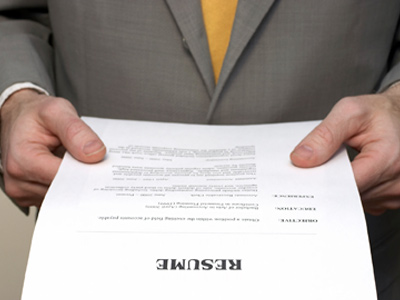What do you think: given a choice, will an employer choose the “general resume” or the one that proclaims a level of expertise?
General vs. Expert
The idea behind the “general resume” is that being flexible is attractive to an employer. But every position, whether health care, sales, or accounting, has a set of skills, training, and even personal attributes that are necessary to do the job well. But it’s the job hunter who demonstrates that he or she has what it takes is much more likely to land an interview than one who has few demonstrated specific skills.
Because many job hunters choose to send a generalized resume, your own general resume is lost as one of many. A few resumes always stand out, and these are the ones that land an interview. These few are ultra-focused on the position, and from beginning to end describe a remarkably suitable candidate. These candidates have positioned themselves as experts with the credentials needed to get the job done.
How to Prove Expertise
Create your resume with focus: demonstrate how you have the precise set of skills, education and past accomplishments to step into the job. Carry this strategy through from the first word to the last, and get ready to field the calls for interviews.
Here’s how to do it. (Keep in mind that you must always be truthful and stay authentic to who you are.)
Remove the passé objective statement. Give yourself a title, for example, “Customer Service Representative.” Now with each line you write, substantiate your ownership of that title.
Pen a profile, which can be thought of as a synopsis of the resume. Whether in point form or paragraph, list the highlights: number of years of related experience, the accomplishment you are most proud of, the skill you are most recognized for, and the personal attribute for which you are well-regarded. Back up your claims in the body of the resume.
Add key words by creating a list of job-related skills. The Customer Service rep might list Conflict Resolution, Sales Follow-up, Data Entry, and Keyboarding of 60 wpm. Those are referred to as hard skills. Soft skills are personality related, and some jobs do demand certain traits. For example a police officer would not benefit from being highly reactionary; in that case a calm demeanour would be a more desirable trait, and worthy of sharing. Each position has hard and soft skills that are needed to complete the job—list yours.
Add context to your workplace accomplishments to show their relation to your employer’s bottom line (think profits, performance and productivity). For example, ditch the boring, position-description-like “Responsible for the filing system,” and impress your resume’s reader with a more specific example of your actual workplace contribution. Here’s a sample or how adding context works: “Revamped a 2,000 file alpha filing system. Researched solutions, secured management approval, and received ‘Outstanding Corporate Citizen’ award.” Context makes all the difference!
Expertise and “Name Brand” = More Money
Here’s another added benefit, sure to convince any remaining skeptics. Everyone pays more for a name brand, whether in fashion, sporting gear, or construction tools. The same holds true for employment. Do your career and your pocket book a favour: drop the generic approach and position yourself as an expert.
Submitted by Stephanie Clark, a local career practitioner, www.NewLeafResumes.ca
Read also:




